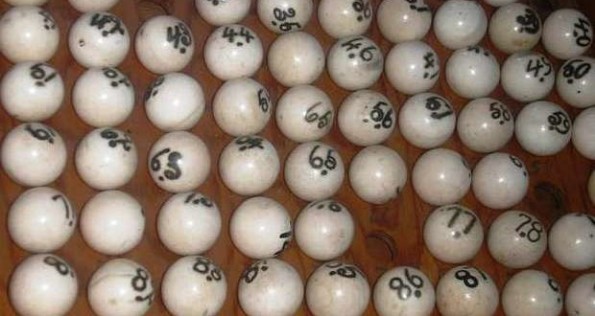 Iván García, 2 February 2015 — It is half past noon and Saul is collecting bets for the clandestine Cuban lottery known as bolita (little ball) or charada, (charade) which was legal before 1959 and has always been very popular.
Iván García, 2 February 2015 — It is half past noon and Saul is collecting bets for the clandestine Cuban lottery known as bolita (little ball) or charada, (charade) which was legal before 1959 and has always been very popular.
Under a scorching sun that provides a tint of summer to what passes for winter on the island, he walks along the steep backstreets of La Víbora, a neighborhood south of Havana. At seventy-six he has found no better way of making money than as a bookie.
“It didn’t matter that I fought at the Bay of Pigs and Escambray. I retired with a monthly pension of 207 pesos (around eight dollars). I make twice that amount taking bets for the bolita every day,” he says as he records a wager by the manager of a farmers’ market in a school notebook.
Around noon he collects the bets of his best clients. It is a varied group that includes the owner of a private restaurant, business directors, a police academy instructor and the manager of state-owned cafe that charges in hard currency.
“They are big players, from 150 to 500 pesos. And since I make two runs a day — one in the morning and one in the afternoon — some of them bet twice a day. I get ten percent of the take, which on a normal day is more that two-thousand pesos,” says Saul.
Although it is illegal, with convictions carrying sentences of two to five years in prison, the game has been played with increasing openness in cities and towns across the island since the 1980s.
In Cuba’s heartland, organized clandestine cock fights bring in a lot of money. In the capital there are a dozen such organized fight rings, each with three bouts a week.
Cock fighting has become an industry. There are people who buy and train aggressive roosters, veterinarians who care for the birds, the owners of rings and others.
Dog fights have also been increasing. It is a bloody and horrific spectacle that generates thousands of convertible pesos at every event.
Houses are routinely being converted into illegal gaming parlors known as burles. Another form of gambling involves car and motorcycle racing on the outskirts of Havana. Often the lookouts for these races are the police themselves.
But the oldest and most popular betting game is the bolita, a system that operates like a Swiss watch.
Modesto has been a bookie since the 1980s, when times were hard. “I was arrested a couple of times,” he says. “The police used to pester you a lot. If the bolita were legal, there wouldn’t be so much police corruption. If they catch you, they fine you. But if you want your operation running at full steam, you have to pay money under the table to a police chief or a tidy sum to the institution itself. People who run illegal operations make friends with the military and police in order to protect their business.”
There are many forms of the illegal lottery known as the bolita, from serious, established operations to impromptu scams. The range of payouts varies. Modesto’s operation pays out 90 pesos for every winning first number, 25 for the straight and 900 for the “parlé,” a combination of two numbers.
It’s simple. The numbers run from 1 to a 100, each with a corresponding symbol. The Cuban operations are based on the Florida Lottery. Other bolita operators such as Rodolfo, a resident of Old Havana, pay out 1,000 pesos for the parlé and 100 pesos for winning first numbers.
According to Saul there are three types of clients: “The regulars are housewives or low-income people who play every day with the hope of landing a parlé to help pay for a daughter’s fifteenth birthday party or to renovate a bathroom. Then there are the people with some extra dough who like to gamble and hope to make a lot of money. The third types are those who play occasionally, who have had a dream or a hunch and bet a wad of money on those numbers.”
The Bolita or “charada” has 100 numbers. Each has its own meaning; some have two or more. For example, 2 is a butterfly or money, 5 is a nun or the sea, 15 is a dog or a pretty girl, 37 is a witch, a hen or an ant and 100 is a toilet or a car.
Sometime after 3 PM Josuan arrives at his neighborhood butcher shop to find out the results of the drawing. “For two months I have been betting on #45, the president, and #14, the cemetery, because of rumors about the death of Fidel. If those two are the winning numbers and I land a parlé, I will throw a party,” he says.
Maria Luisa, a housewife, prefers to bet on #64, big death, and #1, the horse, since “we have always said Fidel was the horse.”
At the moment the bolita is a national obsession, even though the odds are not favorable. It will never be a good business proposition to bet money on a list of one-hundred numbers from which there is a payout on only three. But people keep trying. The last thing to go is hope.
2 February 2015
